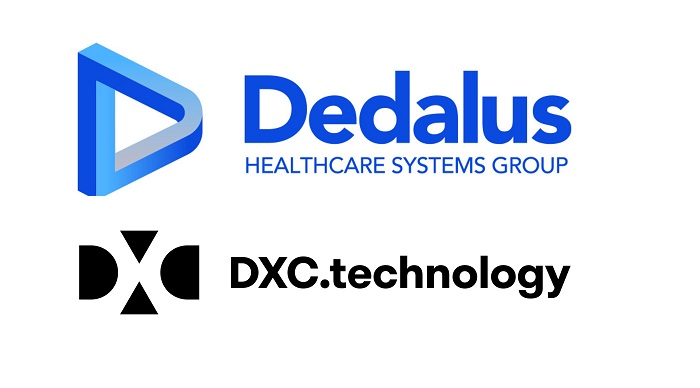Last week saw Dedalus complete the purchase of DXC’s healthcare provider business for $450M, a deal which was originally announced in July 2020.
- DXC was created in 2017 via the merger of CSC and the Enterprise Services business of Hewlett Packard Enterprise (HPE)
- Dedalus has been through a rapid acquisition program over the last ten years acquiring a majority position with France-based Medasys/Noemalife in 2016 and then acquiring the EHR and integrated care business of Agfa Health at the end of 2019
- Andrea Fiumicelli, former VP/GM of DXC’s Healthcare and Life Sciences Business, transitioned to become Dedalus CEO in June 2020
- The combined entity will become the largest EHR vendor in Europe, with a footprint that also spans MEA, Asia and Latin America
The Signify View
The biggest challenge for the new entity will be how it can streamline and integrate a now extremely bloated portfolio. The timeline below outlines the journey both companies have taken to this current position. It illustrates that for both, a history of acquisitions creates a substantial headache for supporting multiple legacy EHR solutions.
At the time of writing DXC had developed a positioning strategy around its DXC Care Suite, a suite that comprised many legacy EHR products such as Lorenzo, i.CM, i.PM, MedChart, Swift, PatientCare plus others. Dedalus is perhaps in an even more challenging position with a range of legacy local Italian solutions plus more from its various French acquisitions over recent years (Medasys/Noemalife, Netika, DL Sante and Infologic). This is before its acquisition of Agfa’s EHR and integrated care business that brought with it the ORBIS portfolio, Inovelan integrated care suite, and the legacy WPD EHR solution sold in Brazil.
Recent history has examples of companies going down this acquisitive route and then struggling to achieve sound business models with a bloated portfolio. Cerner’s offloading of several legacy Siemens’ EHR solutions to focus on Millennium and i.s.h. med last year being one such example.
Dedalus now needs to focus on a period of rapid legacy solution retirement, while transitioning customers to new centralised/integrated platforms. Whilst at the same time not upsetting customers or losing business to competitors. In no way a simple task.
International Footprint Few Others Can Claim
Despite these substantial challenges ahead, the combined entity does mean that Dedalus will have an international footprint that few other EHR vendors can match. Further, with combined 2020 EHR revenues estimated to be approximately $600M, no other European EHR vendor will be close in terms of EHR business size.
Prior to the Agfa acquisition, Dedalus’ strength lay in the Italian and French markets, where it was a market leader. However, the company also sold into Latin America, Benelux, Spain and boasted a small amount of business in Eastern Europe, UK and Africa.
The acquisition of Agfa’s EHR business propelled the firm to market leader in the acute EHR market in the DACH region (Germany, Austria and Switzerland), while helping to cement its market leadership position in France and bolstering its position in Benelux and Latin America, particularly Brazil.
The UK/Eire and to a lesser extent Spain and Oceania were the main engines of DXC’s EHR business. However, again the company had a broader international business covering China, India, other parts of Asia along with a small amount of revenue in Latin America, Benelux, and the Nordics.
The combined revenue of the company’s EMEA operation will now see Dedalus take the number one spot in terms of EMEA market share, particularly after Cerner’s German and Spanish operation sale to CompuGroup Medical reduced the size of Cerner’s EMEA business.
Whilst Dedalus’ core business has demonstrated robust growth over recent years (partly through acquisition), and Agfa’s HCIS business grew an estimated 15% between 2017 and 2019, DXC’s EHR business is estimated to have been relatively stagnant – it has never really recaptured the iSOFT halcyon days prior to UK NPfIT going sour a decade ago. Reinvigorating this part of the business, whilst also driving a product integration strategy, is where attention needs to be focused and success will be measured. New Dedalus CEO, Andrea Fiumicelli, is well placed to achieve this having led on the original CSC/HP Enterprise deal that formed DXC. He will know the challenges better than anyone.
EMEA EHR Market
Broadly speaking, the announcement also marks another step towards consolidation in the EHR supplier base in Europe. The original Dedalus/Agfa deal, Tieto/Evry merger and CompuGroup Medical/Cerner deal have also contributed to this trend in the last year few years. However, the market is still highly fragmented with a long tail of local vendors serving individual countries. The vastly different demands of each European market in terms of EHR functionality and local procurement setup means that solutions need to be highly localised to be successful.
Dedalus has the ambition and the backing of external investors in its attempt to become the first vendor to have a true pan-European footprint; however, it is a strategy few others have attempted or succeeded in for good reason. Dedalus has so far proven it has deep pockets and is willing to scale-up its customer base though inorganic growth; the next stage focused on integration and organic growth will be much harder.
About Signify Research
Signify Research is an independent supplier of market intelligence and consultancy to the global healthcare technology industry. Our major coverage areas are Healthcare IT, Medical Imaging and Digital Health. Our clients include technology vendors, healthcare providers and payers, management consultants and investors. Signify Research is headquartered in Cranfield, UK.
Signify Research has published several market reports on the global EMR market and the Integrated Care/PHM market.


















